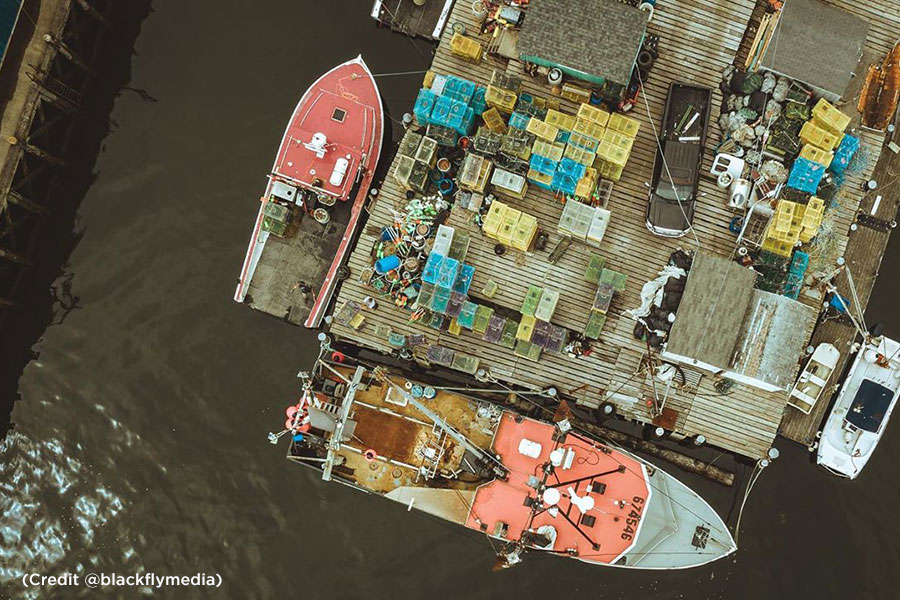
Preserving Maine's Working Waterfront
The destructive storms that battered the Maine Coast in January highlight the need for immediate action to preserve Maine's coastal fisheries.
02/16/24
Maritime Heritage
The state of Maine has a long and rich maritime history. Dating back to before European settlers arrived in the Americas, native people developed tactics to harvest seals, swordfish, clams, and spawning fish along the coast. When settlers did arrive, they brought with them improved seafaring and fishing technology that quickly turned the Maine coast into a fishing hub. Throughout the centuries Mainers fished for whales, sturgeon, lobster, cod, and all manner of cold-water Atlantic fish. The Gulf of Maine's strong tides and cold water have made it a lucrative fishery for generations.
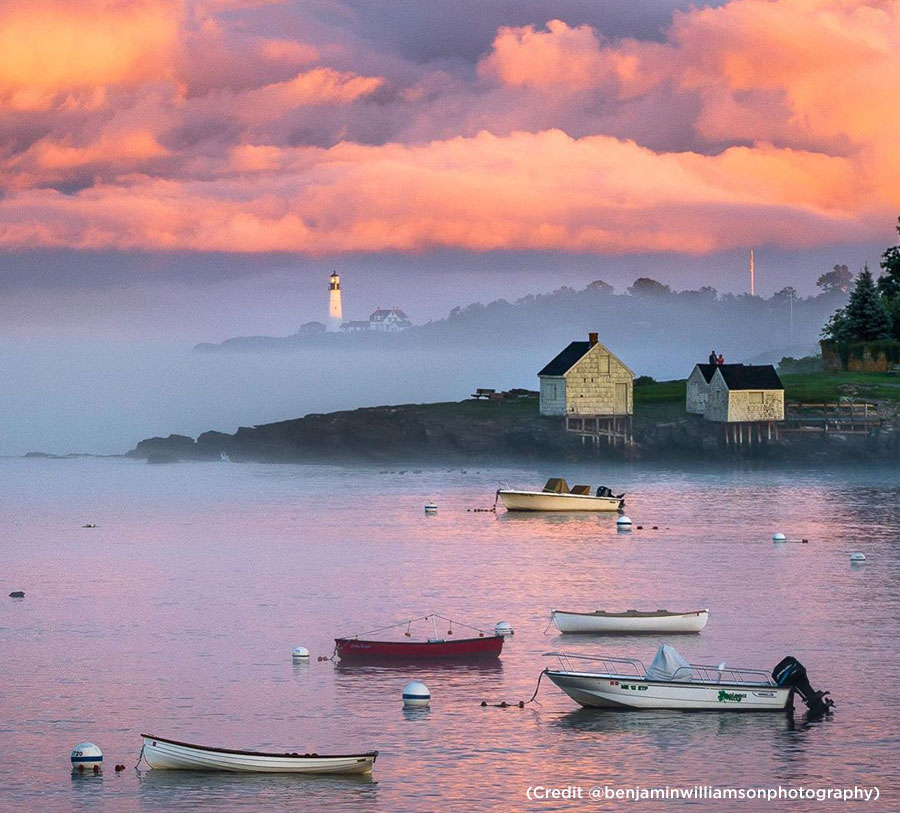
Throughout its history, the Maine coast has remained true to its roots, relying on community fisheries and family businesses to keep the Maine fishing industry thriving. These working waterfronts are a limited resource, threatened by gentrification, rising sea levels, and amplified pressure on fishermen and fishing businesses. Fishing traditions are integral to Maine's coast and culture, and without efforts to preserve waterfronts and educate community members, storms like the ones Maine suffered early in 2024 will further erode what remains of our fishing heritage.
We interviewed accomplished commercial fisherman and award-winning author, Linda Greenlaw to get her perspective on the changes she's witnessed along the Maine coast.
Linda Greenlaw
How have you seen working waterfronts change in Maine during your lifetime?
The most significant change I have witnessed in Maine's working waterfronts is shrinkage. Ports that once had thriving fishing fleets and support infrastructure have dwindled to a few token commercial docks.
You base your books in coastal Maine communities, have you had to adjust how you write about these communities as the environment has changed?
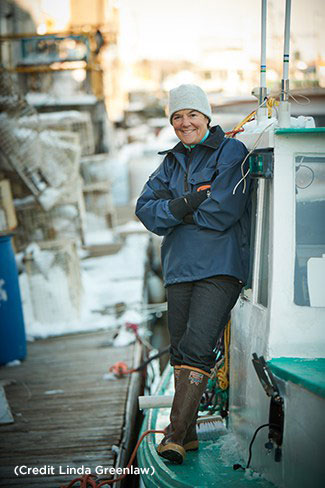
I have not had to change the way I write about coastal communities because I am writing (at least in part) about the changes and challenges.
Many Mainers' homes and businesses recently sustained damage in a storm with record-setting high tides. What's the one thing readers should know about the effect a storm like this has on the fishing industry?
The effects of destructive storm-driven, record-setting high tides are indescribable. They aren't simply boats and docks that get destroyed. They are manifestations of one's life's work. To lose what you have poured blood, sweat and tears into at the hands of Mother Nature would devastate most people. But the true fishermen among us pulls on his boots, rolls up his sleeves, puts his head down and grinds. We never give up. It's all fixable. And we don't know how to do anything else.
What's the biggest challenge immediately facing fishermen and working waterfronts? What can we do to help?
The biggest challenge is public misconception. If you don't know a fisherman, you don't have to go far to find one.
What does the MCFA's slogan – together we persevere – mean to you?
No one can go it alone. It will take a concerted effort to save what's left of our fisheries.
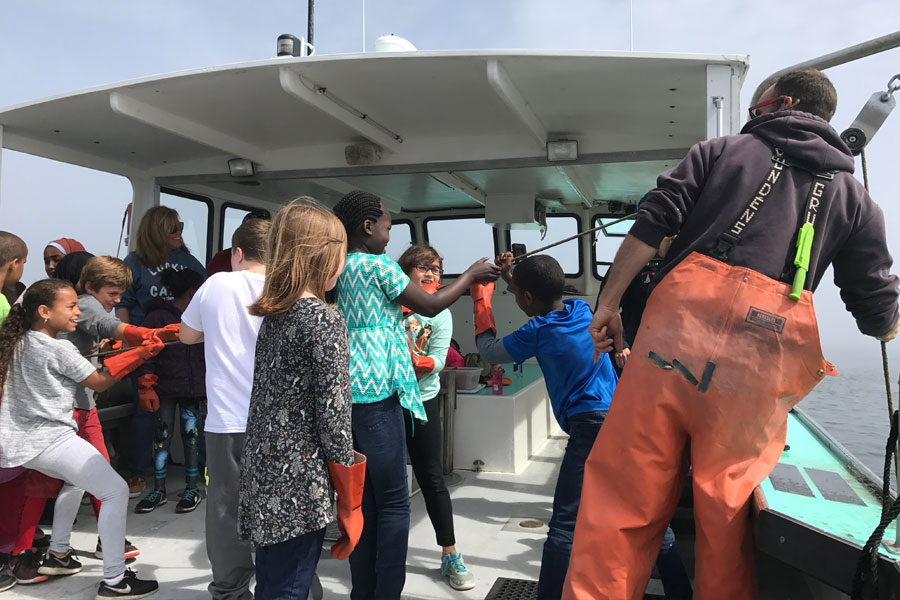
Fisheries and Tourism
In this effort to recover, tourism will play a key role. The relationship between the tourism industries and coastal fisheries in Maine has developed positively in recent years, with tourism driving seafood-craving consumers to Maine, and in some cases, specifically to see working waterfronts in action. Fishermen have leveraged these opportunities further, developing guided tours of wharves and boat rides to bird watch and sample aquaculture farms.
Visitors are drawn not only to Maine's picturesque landscapes and charming coastal communities but also to savoring the fresh and delectable seafood and witnessing how it's harvested. These unique assets and access coastal fishermen possess enables them to diversify their incomes without putting any additional strain on seafood populations. This cycle of economic support, in which tourism revenue allows fishermen to operate more sustainability, underscores the intertwined prosperity of Maine's fisheries and tourism sectors.
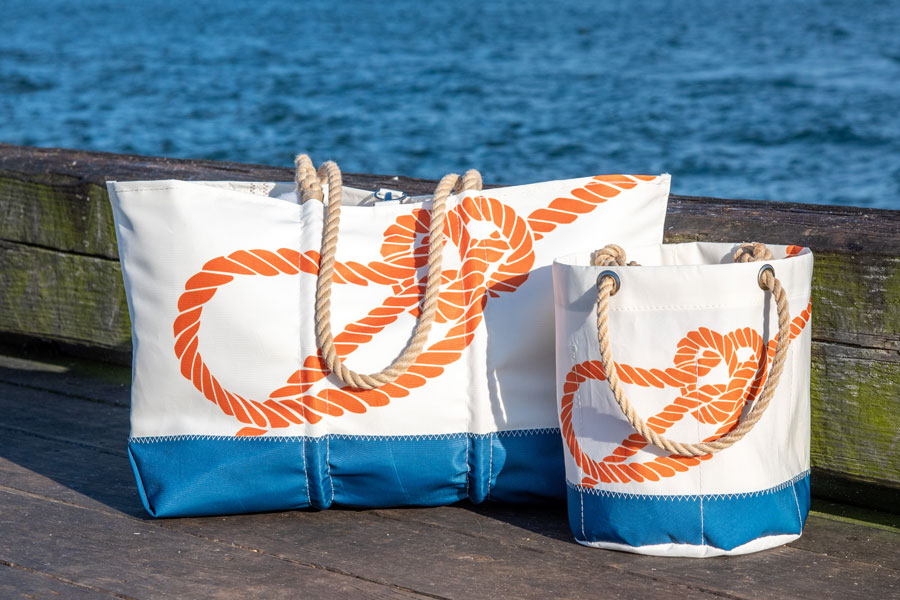
Together We Persevere
In support of the Maine Coast Fishermen's Association, we've designed a large tote and beverage bucket featuring a bowline knot design. The bowline, besides being a classic sailor's knot, represents strength under pressure, a metaphor we felt was very appropriate representing the Maine Coast and its fishermen. The sale of each of these bags provides a 20% donation in support of the MCFA's mission to preserve working waterfronts. Shop the bags.
In response to the coastal destruction the MCFA has sprung into action creating a portal to donate directly to cleaning and rebuilding efforts. The MCFA is a critical asset to Maine fishermen, meeting with Maine's congresspeople and Governor to help assess the widespread damage and secure state and federal funding. Despite the destruction, as Maine fishermen do, they've remained undeterred and determined to get to work rebuilding.
SHARE YOUR
#SEABAGSIGHTING
Signup for email,
and Save 10%!
